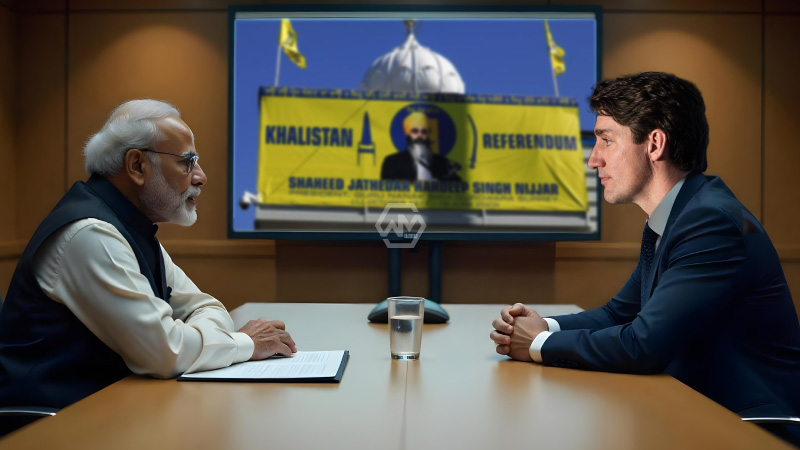- India withdraws its High Commissioner and diplomats following Canada’s murder investigation.
- Canada claims Indian diplomats are “persons of interest” in the killing of Sikh separatist leader Hardeep Singh Nijjar.
- India strongly denies the accusations, calling them “preposterous” and politically driven.
India has recalled its High Commissioner to Canada along with other diplomats after the Canadian government allegedly identified them as “persons of interest” in an investigation into the murder of Sikh separatist leader Hardeep Singh Nijjar.
This move marks a sharp escalation in tensions between the two nations, which have been strained since Canadian Prime Minister Justin Trudeau accused India of involvement in Nijjar’s killing on Canadian soil in June 2023.
Diplomatic Rift Deepens as India Withdraws Envoy Over Canada Murder Probe
Nijjar was an outspoken supporter of the Khalistan movement, which advocates for a separate Sikh homeland. India had labeled him a terrorist in 2020, while his supporters rejected these accusations. Canada, maintaining that Nijjar’s assassination was a targeted attack, has since sought to hold India accountable, but India demands that Canada provide evidence to substantiate these claims. Diplomatic relations had shown signs of improvement when India resumed visa services in October 2023, but this latest development has renewed the strain.
The killing of Nijjar, a prominent Sikh separatist leader advocating for an independent Khalistan, remains a sensitive issue. India had long labeled him a terrorist, accusing him of leading a militant movement, while Nijjar’s supporters in Canada and elsewhere viewed him as a political activist. Canada’s Prime Minister Justin Trudeau initially cited Canadian intelligence linking Indian agents to the killing, a claim that India has consistently denied.
India’s Ministry of External Affairs issued a strong statement condemning Canada’s targeting of its diplomats, warning of potential repercussions. They emphasized the need for Canada to provide credible evidence to support its accusations. Meanwhile, Canada has yet to officially respond to India’s recall of its diplomats, though the diplomatic fallout seems far from over.
Despite brief signs of a thaw in relations after visa services were restored, this latest development may push the two countries into deeper diplomatic isolation. Canadian Foreign Minister Mélanie Joly has recently described bilateral ties as “tense” and indicated that the situation remains precarious.
The diplomatic standoff between India and Canada continues to escalate with no immediate resolution in sight, as both nations hold firm on their respective stances over Nijjar’s assassination.
“India now reserves the right to take further steps in response to these latest efforts of the Canadian government to concoct allegations against Indian diplomats.”



